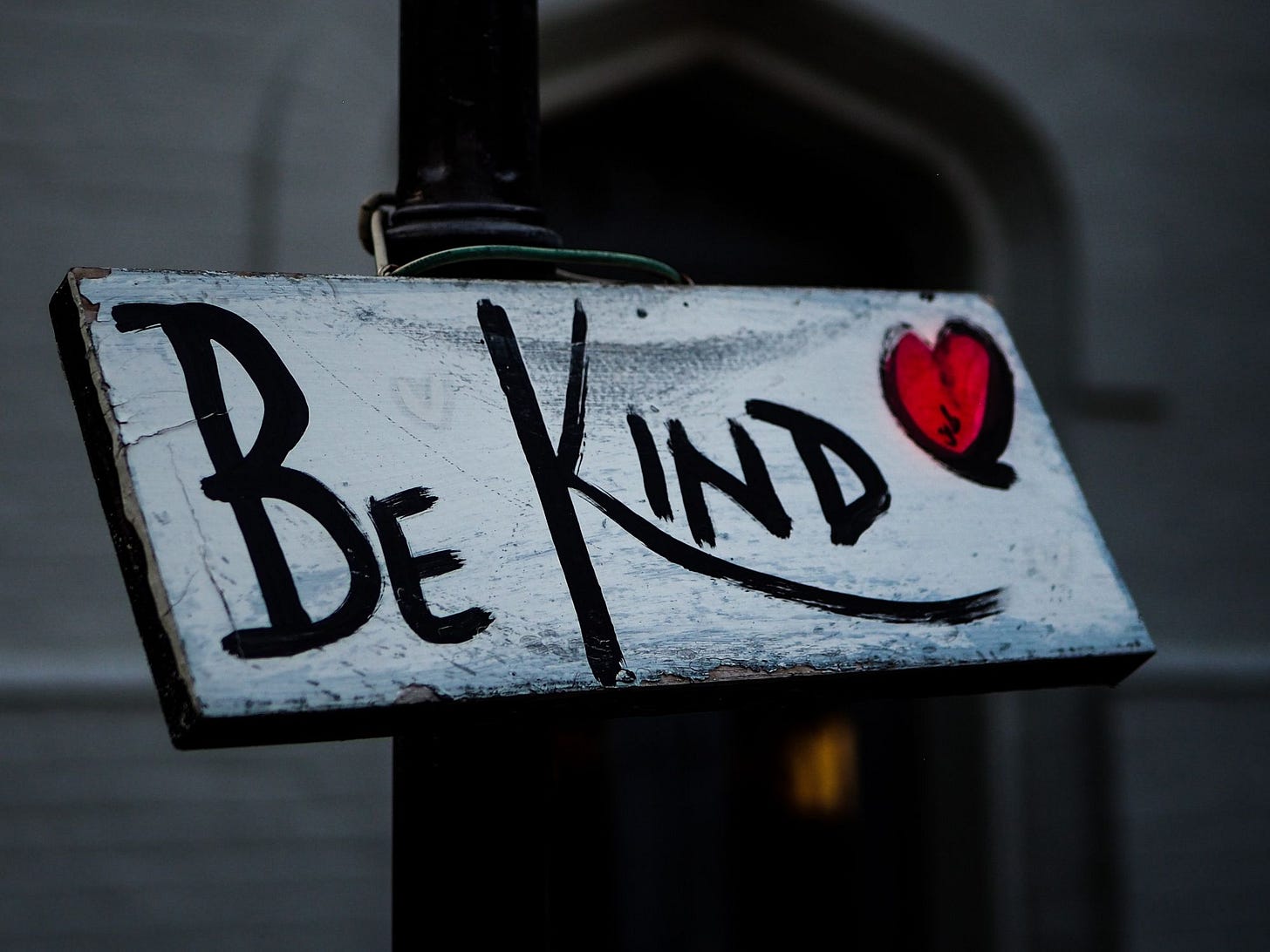Be kind to your brother

My brother and I fought quite a bit as children. While we are now close friends, those early years caused our parents much pain. A downcast sibling always elicited the same refrain: “Be kind to your brother.”
Well-meaning guidance to be sure. But does it really help?
“Be kind.” As in, conduct your behavior in such a way that others find it agreeable.
Implicitly unsaid is that the contents of your mind matter far less than your conduct.
Imagine if the judicial system convicted and incarcerated based on thought, which always precedes action. Perhaps everyone would be imprisoned.
And yet wouldn’t improving the character of our thoughts be far more effective, and societally beneficial, than changing what we do?
But we put so little focus on enhancing thought. Parental direction rarely counsels, “Have kind thoughts about your brother.”
Would we even know how to have kind thoughts? Probably not. Particularly since we do not think our thoughts.
Each thought we have is not sourced in the brain. Thoughts come from the mind. As Gloria Wapnick would often say, “You don’t think; you are thunk.”
This is a very challenging concept to grasp. It certainly seems like we can think whatever thoughts we want. But that’s clearly not the case. Otherwise we’d all exist in a blissful state of glorious peace.
As we read in A Course in Miracles:
Your thoughts are nothing that you think you think. (W-pI.45.1)
Which raises the provocative question, “Are we not responsible, then, for our thoughts?” Not their content, but most definitely their meaning.
We’ve deluded ourselves into believing we think our thoughts. Which keeps us from the one place where we can indeed impact their quality and affect their substance — the mind.
By returning awareness to the mind we’ve reached the root of thought. Outside the brain. Outside the world. Outside of time. Within the realm of reality. And it is here, and only here, that we can truly be kind to our brother. Because in this state we recognize we are one with everything. We’ve merged with the one genuine thought there is, love.
Join me in Thursday’s class where we’ll explore the important distinction between thought and behavior, and practices we can undertake to sincerely make a difference. I look forward to seeing you then.



